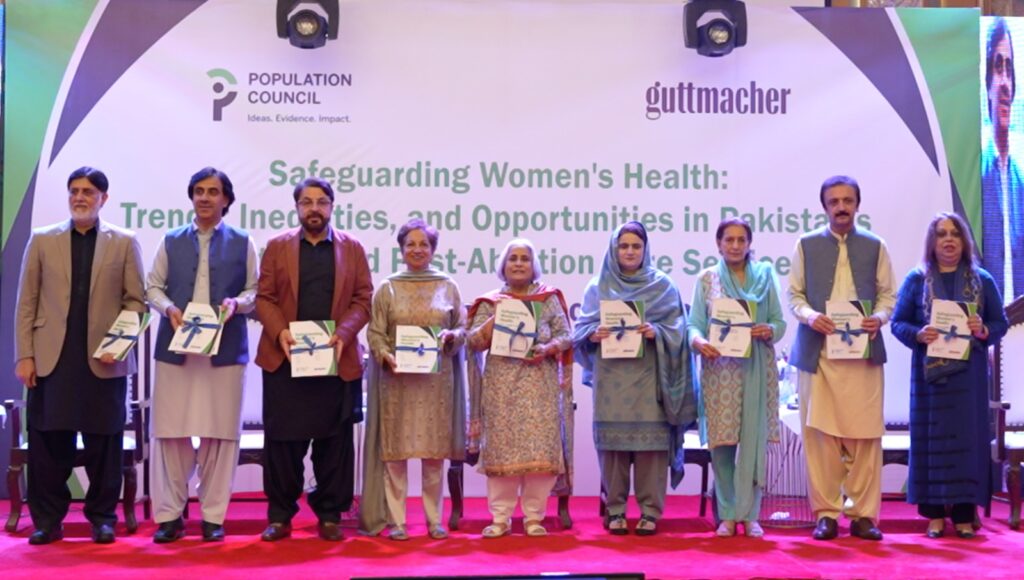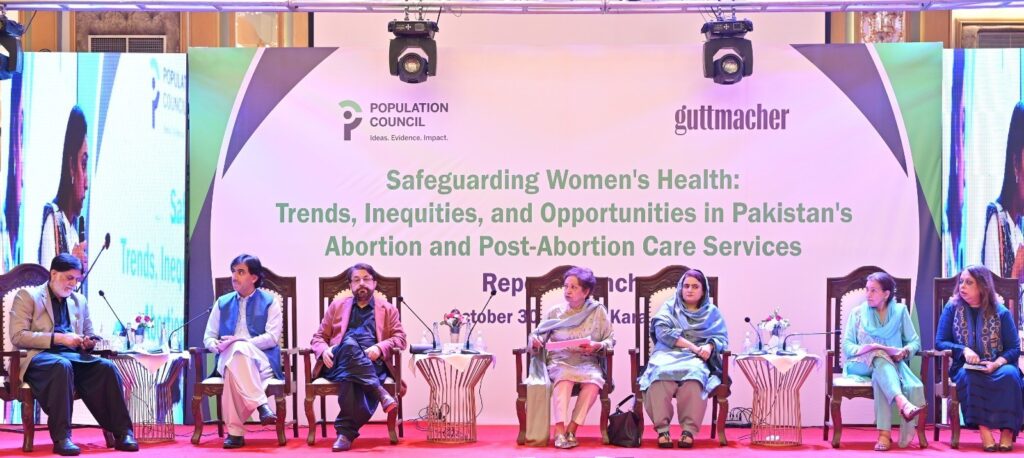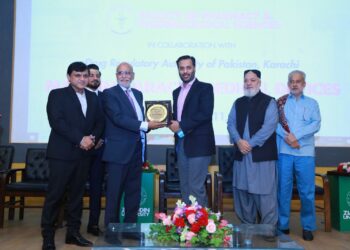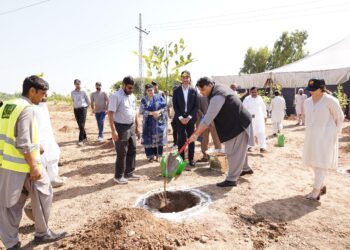Urgent need to integrate contraceptive and
post-abortion care services nationwide
to curb unsafe abortions
Staff Reporter

Karachi: Sindh Health Minister Dr. Azra Fazal Pechuho has stressed the need to expand contraceptive and post-abortion care nationwide to reduce unsafe abortions. At the Karachi launch of the Population Council and Guttmacher Institute report, Safeguarding Women’s Health: Trends, Inequities, and Opportunities in Pakistan’s Abortion and Post-Abortion Care Services, Dr. Pechuho highlighted the need for counseling and accessible contraceptive options.
Key Report Findings on Unsafe Abortions in Pakistan
The report shows that, in 2023, 66 per 1,000 women of reproductive age in Pakistan had an induced abortion. Of these women, 21-30% experienced complications, with rural and low-income women at a higher risk. Although complication rates from abortions have fallen, many gaps remain. Further, about 17.3% of women in Pakistan report an unmet need for family planning.
Need for More Community Health Workers
Dr. Pechuho called for an increase in community health workers. She said that this would help people access better care and urged alignment of maternal health policies with World Health Organization standards. “Unsafe abortions lead to maternal deaths. We must make safe reproductive healthcare a priority,” she stated.
Family Planning and Reproductive Services are Essential
Dr. Zeba Sathar, Country Director of the Population Council, supported Dr. Pechuho’s call. She emphasized that accessible family planning and safe reproductive care are essential for women’s health and well-being. “Giving women safe, accessible healthcare improves health outcomes and boosts progress in society,” she noted.

Panel Discusses Barriers to Reproductive Health Services
A panel discussion, “Safeguarding Women’s Health in Pakistan,” was led by Dr. Yasmeen Sabeeh Qazi, CEO of QZ Catalyst. Panelists included Prof. Dr. Azra Ahsan, President of the Association for Mothers and Newborns, and Prof. Dr. Nusrat Shah, Vice Chancellor of Shaheed Mohtarma Benazir Bhutto Medical University. They discussed challenges in reproductive healthcare and stressed the need for policy change and public education.
High Rate of Unintended Pregnancies in Pakistan
Dr. Sathar presented data on unintended pregnancies, noting that Pakistan sees around 3.8 million abortions each year. She stressed that public and private health facilities should meet national standards for uterine evacuation and post-abortion care.
Provincial Efforts to Improve Reproductive Health
Health officials from Sindh and Balochistan shared their initiatives. Sindh’s Population Welfare Secretary, Hafiz Abdul Hadi Bullo, said that increasing family planning could lower abortion rates. Balochistan’s Population Welfare Secretary, Abdullah Khan, spoke about efforts to pass child marriage laws and expand family planning in local communities.
Working Together to Strengthen Reproductive Healthcare
The event reflected a shared commitment among government bodies, health organizations, and international partners. Their goal is to strengthen reproductive healthcare for Pakistani women, address major health challenges, and improve community well-being across the country.






















